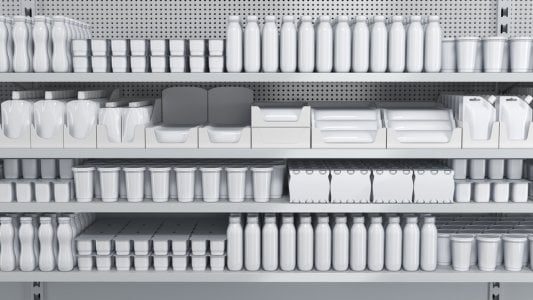State officially bans single-use items and other everyday plastic products
By
Seia Ibanez
- Replies 25
South Australia is taking a bold step forward in environmental conservation with its latest initiative to ban a wide array of single-use plastic items.
Starting 1 September, the state is set to implement a new phase in its crackdown on plastics, which will see the end of a grace period and the introduction of significant penalties for non-compliance.
The ban, which is part of the Single-use and Other Plastic Products (Waste Avoidance) Act 2020, aims to phase out single-use plastics by the following year.
This move is not only about reducing pollution but also about cutting carbon emissions and safeguarding marine life from the detrimental effects of plastic waste.
Single-use plastic items such as hot and cold beverage containers, food containers for ready-to-eat takeaway food, food bag tags, confetti, balloon sticks, and ties are all included in the list of items to be banned.
Additionally, expanded polystyrene takeaway containers, plastic barrier bags, thick supermarket or boutique-style plastic bags, and single-style takeaway bags will also be prohibited.
The South Australian government is not offering a grace period for this transition. Those found selling, supplying, or distributing banned items could face fines ranging from $315 to $20,000.
This stringent approach underscores the seriousness with which the state is tackling the issue of plastic waste.
From 1 September 2025, items such as plastic fruit stickers, plastic soy sauce fish, and pre-packaged products will also be banned from sale, supply, or distribution in South Australia.
Local businesses are already adapting to these changes.
Marion, the co-founder of Compostable Alternatives, which produces compostable coffee cups and containers, has welcomed the ban.
‘In Australia, we use 1.8 billion single-use coffee cups each year. and most of them are lined with a plastic lining on the inside that makes them weatherproof,’ she said.
‘Those cups can not be recycled. And, they are big contaminants in the recycling centres and composting facilities.’
To assist retail businesses in navigating these changes, the Australian Retailers Association (ARA) has developed an online resource, which includes on-demand webinar content and an overview of bans across the country.
 How do you feel about the ban on single-use plastics? Have you found any compostable or reusable products that you would recommend to fellow members? Share your experiences and suggestions in the comments below!
How do you feel about the ban on single-use plastics? Have you found any compostable or reusable products that you would recommend to fellow members? Share your experiences and suggestions in the comments below!
Starting 1 September, the state is set to implement a new phase in its crackdown on plastics, which will see the end of a grace period and the introduction of significant penalties for non-compliance.
The ban, which is part of the Single-use and Other Plastic Products (Waste Avoidance) Act 2020, aims to phase out single-use plastics by the following year.
This move is not only about reducing pollution but also about cutting carbon emissions and safeguarding marine life from the detrimental effects of plastic waste.
Single-use plastic items such as hot and cold beverage containers, food containers for ready-to-eat takeaway food, food bag tags, confetti, balloon sticks, and ties are all included in the list of items to be banned.
Additionally, expanded polystyrene takeaway containers, plastic barrier bags, thick supermarket or boutique-style plastic bags, and single-style takeaway bags will also be prohibited.
The South Australian government is not offering a grace period for this transition. Those found selling, supplying, or distributing banned items could face fines ranging from $315 to $20,000.
This stringent approach underscores the seriousness with which the state is tackling the issue of plastic waste.
From 1 September 2025, items such as plastic fruit stickers, plastic soy sauce fish, and pre-packaged products will also be banned from sale, supply, or distribution in South Australia.
Local businesses are already adapting to these changes.
Marion, the co-founder of Compostable Alternatives, which produces compostable coffee cups and containers, has welcomed the ban.
‘In Australia, we use 1.8 billion single-use coffee cups each year. and most of them are lined with a plastic lining on the inside that makes them weatherproof,’ she said.
‘Those cups can not be recycled. And, they are big contaminants in the recycling centres and composting facilities.’
To assist retail businesses in navigating these changes, the Australian Retailers Association (ARA) has developed an online resource, which includes on-demand webinar content and an overview of bans across the country.
Key Takeaways
- South Australia has officially banned a range of single-use plastic items from September 1, including beverage and food containers, food bag tags, and other products.
- The government is enforcing penalties for those selling, supplying, or distributing banned items, ranging from $315 to $20,000.
- This move is part of the Single-use and Other Plastic Products (Waste Avoidance) Act 2020, which aims to phase out single-use plastics by the following year to reduce pollution and protect the environment.
- Compostable or reusable alternatives must replace banned items, and businesses like Compostable Alternatives are supporting the initiative with their products.








